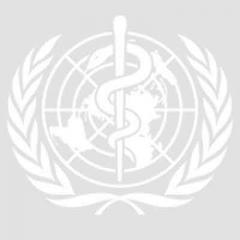Your progress
0%
complete
Now let’s consider what happened after a tsunami devastated coastal areas of Sri Lanka in 2004.
Please take a moment now to read the following story.
Learn how a coordinated effort among different agencies worked to include people with disabilities in their humanitarian relief work.


The Access for All campaign was launched immediately after the tsunami that devastated large parts of the coastal areas of Sri Lanka on 26 December 2004. It was founded jointly by Disability Organizations Joint Front (a national umbrella group of 18 local disability organizations), Spinal Injuries Association, Motivation, CBM, John Grooms, Handicap International and the Ministry of Health (Youth Elderly Disabled and Displaced Persons Unit).
The aim of the campaign was to promote the inclusion of all disabled people and their needs in the tsunami relief, reconstruction and rehabilitation work in Sri Lanka. In particular, it focused on rebuilding an accessible Sri Lanka – ensuring that all public buildings, transport, places of employment, services and infrastructure are accessible to people with disabilities. Access was never particularly easy for people with disabilities living in Sri Lanka even before the tsunami. However, the extensive reconstruction that was required afterwards was a good opportunity to ensure that their needs were considered and addressed.
The Access for All committee started holding meetings two weeks after the tsunami, inviting people responsible for rehabilitation and reconstruction, including governmental authorities, international and Sri Lankan non-governmental organizations and the public sector, to attend. The purpose of these meetings was to make everybody aware of the need for accessibility for people with disabilities, including the need for accessible distribution processes and temporary shelters, and to offer technical advice, resources and support.
As a result of the Access for All campaign, there has been a great willingness among organizations involved in reconstruction and rehabilitation work to acknowledge and address disability issues. Accessibility regulations are now in place – construction of all new buildings must consider access issues and all inaccessible buildings must be made accessible within a stipulated period. The Access for All campaign continues in Sri Lanka and now focuses on the inclusion of people with disabilities in the wider context by promoting their rights and equal opportunities for education and employment.
When you are finished reading, consider: